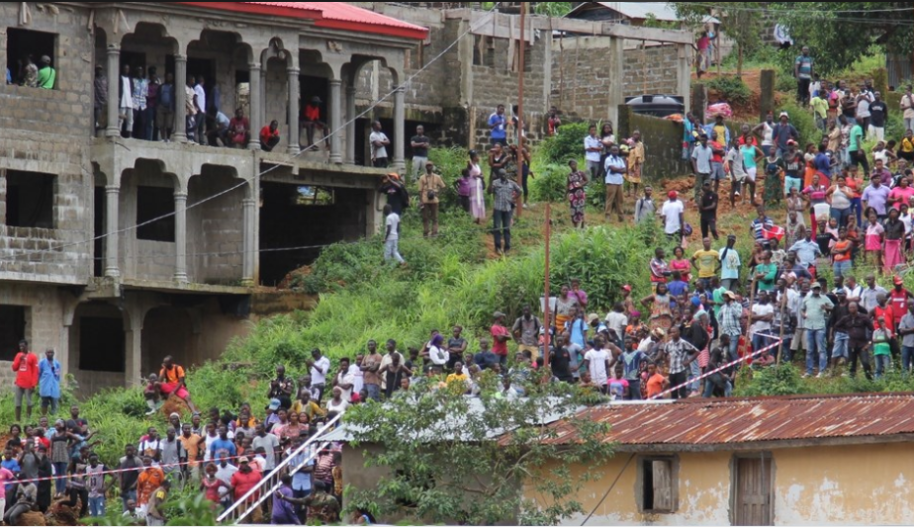The terrible aftermath of the mudslides in Sierra Leone, which have left more than 3000 people homeless, grimly illustrates the human cost of the government’s failure to implement housing and land policies, said Amnesty International.
Over 400 people were killed in the mudslide, which struck in the early hours of Monday 14 August in the Regent community of the capital, Freetown, with victims largely those living in informal settlements. With hundreds of people still missing, the shocking death toll is expected to rise substantially.
“Right now, Sierra Leone needs immediate assistance to save lives and provide for those who have lost their homes, but we should also ask why so many people died. While flooding is a natural disaster, the scale of the human tragedy in Freetown is, sadly, very much man-made,” said Makmid Kamara, Amnesty International’s Deputy Director of Global Issues.
“The authorities should have learned lessons from previous similar incidents and put in place systems to prevent, or at least minimise, the consequences of these disasters. Devastating floods are now an annual occurrence in the country’s capital. Yet, due to a lack of regulation and insufficient consideration for minimum standards and environmental laws, millions of Sierra Leoneans are living in dangerously vulnerable homes.”
The right to adequate housing under international law requires that every home be ‘habitable’, which includes providing protections against disasters such as this. However, poor regulation and failures to ensure environmental factors are part of urban planning in Sierra Leone often result in structures being built that are both unsafe and situated in dangerous locations.
In 2015, more than 10 people were killed and thousands more left homeless after flooding hit the capital. Hundreds were forced to camp in the national stadium for weeks while alternative accommodation was found for them.
“We call on the international community to support the emergency relief efforts of the Sierra Leonean government. The thousands of men, women and children who have lost their homes urgently need temporary accommodation and access to proper sanitation and healthcare,” said Makmid Kamara.
“We would also urge that at this critical time, the government ensures all emergency support is delivered in a completely accountable and transparent manner. There must be no repeat of the mismanagement and corruption that blighted the response to the country’s Ebola crisis.”













